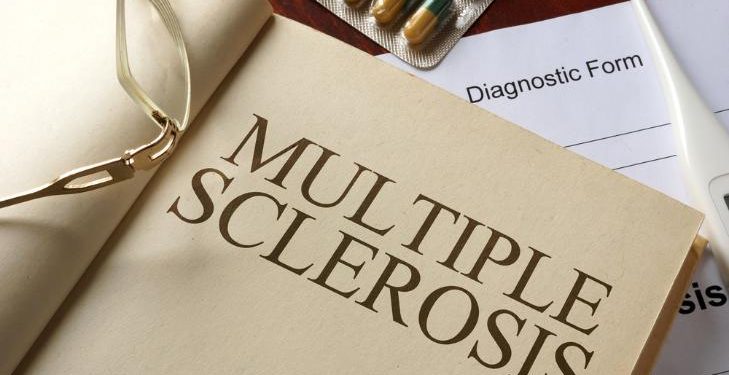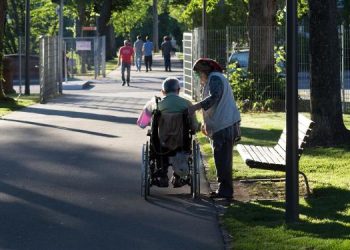Local chapters often help people with MS find housing, obtain medical equipment, and find other services. They also offer support groups and other social events.
A new project led by Saint Louis University in Missouri is seeking to identify markers of prodromal MS, which may indicate that a person will develop the disease years before symptoms appear.
Research
The National Multiple Sclerosis Society supports research in all areas of the disease, including basic science, translational research to convert laboratory findings into treatments, and clinical trials to test whether those new therapies can stop MS or slow its progression. It also provides funding for people with the disease and their families, and it offers programs to help them live well with the disease. Its goal is to cure the disease and help people with it avoid disability.
Research efforts are focused on a number of specific questions, including how MS develops, whether exercise and physical activity can reduce symptoms, and what causes relapses in relapsing-remitting MS. The Society also supports projects to identify biomarkers for the disease, such as changes in the immune system that appear before symptoms begin. These biomarkers may be used as early warning signs and to predict the course of a person’s MS.
Researchers are analyzing the genomes of people with MS to see whether any genetic factors contribute to the development of the disease, and they are searching for ways to modify those genes. Others are analyzing the microbiomes of twins to see if certain types of bacteria can trigger MS, and they are tracking people with MS to find out if some factors (such as prior viral infections or age) can affect the severity of their disease.
Efforts are being made to increase the amount of cross-pollination between clinical and basic scientists. The Society is trying to encourage this by hosting symposia in conjunction with meetings of other medical and neuroscience societies, and by providing funding for minisabbaticals that allow clinical researchers to work with basic scientists.
The Society’s Harry Weaver Scholarship program gives a five-year salary and research support to researchers at the start of their careers. It is named after a researcher who made a major contribution to the field of multiple sclerosis. The Society’s Health Care Delivery and Policy Research program funds investigators who conduct studies that address the organization’s research priorities, which include exploring how to fund, measure, and improve the quality of MS research; identifying barriers to research; and promoting pathways to a cure for MS.
Education
The National Multiple Sclerosis Society provides education on living with MS. Its online learning program is available 24 hours a day, seven days a week. The site offers a variety of educational webcasts that feature experts on a range of topics. The society also offers an extensive collection of books that were previously approved through a peer review process. These books cover a wide variety of MS-related topics, including exercise, diet and mental health.
The Society is committed to educating patients about the disease and helping them make informed decisions about their healthcare. Its website features numerous resources, a list of medical professionals and MS specialists, and an online support community. The organization also hosts various events to raise awareness of the disease. In addition, it has a network of local chapters and regional offices that provide services and support to people with MS.
Multiple sclerosis is an unpredictable disease that affects the central nervous system. It damages the insulation (called myelin sheath) that surrounds nerve fibers in the brain and spinal cord. This damage causes a number of symptoms, including fatigue, mobility challenges, cognitive changes and vision issues. The cause of MS is unknown, but it appears to be caused by a misdirected immune response by the body against itself.
A person’s chances of developing MS are affected by their gender, age and family history. Women are up to three times more likely to develop MS than men. It is also more common in people of Caucasian or Northern European descent. Symptoms of the disease vary from person to person, but they may include numbness or tingling, muscle weakness or difficulty moving, and visual problems.
In addition to its many online resources, the Society publishes several magazines and newsletters. The MS Focus newsletter reaches tens of thousands of people in the United States. It includes interviews and articles about researchers and individuals affected by MS. MS Clinical Care Connection, the Society’s quarterly newsletter for healthcare professionals, provides information on a variety of clinical topics.
The Society’s Pathways to Wellness in MS initiative focuses on the links between lifestyle and improved outcomes for people with MS. Its goal is to support a comprehensive approach to healthcare that focuses on prevention, treatment and wellness. It also supports research in the areas of diet, physical activity and mental health.
Support
MS Society mobilizes people and resources to ensure everyone affected by multiple sclerosis has the connections, information and support they need. Their services include advocacy, fundraising, funding cutting-edge research and facilitating professional education. They also provide emotional and social support for patients and their families and help them to move their lives forward. Their goal is to cure MS while empowering people to thrive with it.
MS is an unpredictable disease. It can cause a variety of symptoms, from fatigue to cognitive changes and mobility challenges. It can affect almost three times as many women as men. MS is an autoimmune condition, in which the immune system mistakenly attacks the lining of the central nervous system, called the myelin sheath. This lining helps nerve fibres to communicate with each other quickly and effectively. When attacked, it can become damaged or stripped away, causing scars (also known as lesions) that can affect how your brain and body work.
Depending on your symptoms and lifestyle, you may need home care to manage your daily activities. Home health aides can assist with bathing, dressing and cooking. They can even drive you to appointments. They can also provide companionship, emotional support and assistance with medication. You can find home healthcare providers through the National Multiple Sclerosis Society, local hospitals or by word-of-mouth referrals.
There are also many online groups and forums where you can discuss your experiences with others living with MS. These communities are a great source of information about new treatments and clinical trials. You can also read reputable MS-related blogs and newspapers, including MS News Today and other online magazines. However, be cautious of online sources, and rely on the advice of healthcare professionals.
The National Multiple Sclerosis Society also offers financial aid for those who need it. This includes grants for home modifications, equipment such as wheelchairs and van lifts, and prescriptions. The Society also has a program called Navigators, which connects patients with local resources to help them with a wide range of issues. Other programs that provide financial assistance include Patient Access Network Foundation and Friends of Man.
Advocacy
People with MS are often good advocates because their words come from the heart and are based on personal experience. Their passion is infectious and they are not easily daunted. They understand the impact of a closed door and every rejection they face only adds fuel to their fire. As such, they have the potential to be powerful voices in the fight to raise awareness of multiple sclerosis.
The National Multiple Sclerosis Society is dedicated to raising money for research and services for people living with multiple sclerosis. It also provides a range of education, support, and advocacy programs. It is a large charity and has a wide reach with its 50 state network of chapters. The Society uses a variety of tools to raise awareness about its work, including online petitions and phone campaigns.
Multiple sclerosis is a neurological condition that causes the body to attack its own central nervous system. This can cause symptoms such as blurred vision, fatigue, weakness, numbness, and difficulty with balance and coordination. While there is no cure for MS, treatment can help alleviate some of the most common symptoms. This is especially true for those with relapsing remitting MS, the most common type of multiple sclerosis.
MS is a progressive disease that affects the brain and spinal cord. This is because the immune system attacks the myelin sheath that insulates the nerve fibers in these areas. This results in the development of scar tissue called lesions, or plaques.
There are many different types of treatments for multiple sclerosis. Some involve drugs while others focus on reducing the rate of relapses. It is important to talk to your doctor about your symptoms and the best treatment for you.
The MS Society works hard to make sure its programs are accessible to the entire community. They provide programs and services like an MRI fund, cooling accessories for heat-sensitive individuals, educational events, and home modifications. It is also a top-rated charity in terms of transparency and accountability. It meets CharityWatch’s 20 Standards for Charity Accountability. The organization also complies with all state laws in which it operates.









